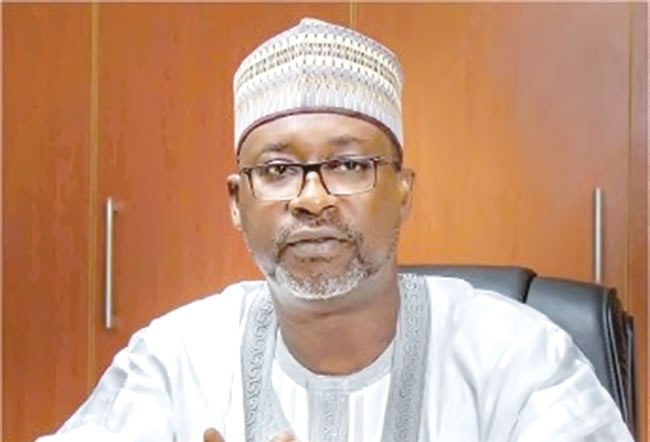Ministry of Water Resources under Engr. Suleiman Adamu has proposed an expenditure of N750m to continue the campaign against open defecation in Nigeria for the 2023 fiscal year.
The amount encompasses all sanitation challenges, the ministry has been mandated to provide such services in consonance with Goal Six of the Sustainable Development Goal.
The budget, which would be the last of the federal financing to be supervised by the minister, Suleiman Adamu, in the campaign that has gulped over N3bn since 2019 has recorded 78 free Local Government Areas out of the 774 local governments in Nigeria.
Captured under the Economic Recovery Growth Plan (ERGP), with the code ERGP28124537 first described as National ODF Campaign Fund, it swallowed up N3.1bn for the period 2019 to 2021.
While the same code in 2022 described the purpose for funding, as, “Campaign to end Open Defecation in Nigeria Fund: Monitoring, Advocacy, Sensitization, Promotion, Communication and provision of Sanitation and Hygiene Facilities to end Open Defecation Practice Nationwide.”
The ongoing project, which took a new description had N615,022,675 being expended under the current budget to rid Nigeria of her status of being the world capital for open defecation.
At the moment official records showed that Kastina, the home state of President Muhammadu Buhari has recorded 24 Open Defecation Free Local governments Areas out of 34, this represents a 58% success rate.
In Jigawa the home state of the Minister of Water Resources, Engr. Suleiman Adamu, 22 Local Government Areas are free of Open Defecation (ODF) out of its 27 LGAs, representing 81.5% success rate.
While the statistics for the President’s home state of Katsina and the Minister’s home state of Jigawa showed promise of exiting open defecation by the target date with continued investment in the campaign, the picture is gloomy for the country in general as it relates to the hygienic disposal of human waste.
Out of the 774 local governments in the country that are practising open defecation, only 78 representing 10.9% are free of the social and health malaise, while 694 local government areas representing 89.9% were not effectively reached by the huge investment by the ministry of water resources in her campaign against open defecation.
At the World Global Hand Washing day aimed at promoting hygiene and sanitation, which was held in Abuja, the minister in his keynote address on Monday, said Access to hygiene under the Sustainable Development Goal 6 for Water and Sanitation is indicated by the availability of handwashing facility with soap and water on premises.
Though hygiene is a critical element of an integrated approach to Water, Sanitation and Hygiene (WASH) service delivery, an estimated 2.3billion people globally and 171million Nigerians do not have access to hygiene services.
There are also disparities in access across wealth quintiles, geographical locations and vulnerable groups. In Nigeria, only 13% of the rural population has access as against 25% of the urban population, while the wealthiest households are about four times more likely to have basic handwashing services compared to the poorest households.
This administration through the Federal Ministry of Water Resources has continued to demonstrate its commitment to the development of the WASH Sector in Nigeria as an acknowledgement of its importance in the health value chain.
Consequently, it has rolled out several initiatives including the development of the National Action Plan for the revitalization of the WASH Sector with the declaration of a State of Emergency in the Sector, the implementation of the PEWASH programme, the launch of ‘Clean Nigeria: Use the Toilet’ Campaign to end open defecation by 2025 and signing of Executive Order 9.
Furthermore, the $700million Sustainable Urban and Rural WASH (SURWASH) project has commenced within the context of stimulating increased access to WASH through investment in the relevant infrastructure.
In addition, we have put in place a National Hygiene Promotion Strategy and Implementation Guidelines for Schools, Primary Health Care Centres and Public Places.
Following the global launch of the Hand Hygiene for All initiative by UNICEF and WHO in 2020, Nigeria commenced the process of developing a National Hand Hygiene Roadmap for All in 2021 towards improving the enabling environment and infrastructure for handwashing uptake as part of the recommendations for COVID-19 prevention and control.
The minister of water resources who was represented by Deputy Director Water Control and Sanitation, Mrs Elizabeth Ugo said “We know that handwashing with soap is key to reducing the burden of many diseases which pose chronic challenges to the health of the population and development.
“It contributes to preventing and mitigating the transmission of diseases such as Cholera, Diarrhoea, Lassa Fever, COVID-19, and Neglected Tropical Diseases.
“Handwashing with soap will remain a ‘first-line’ defence in preventing outbreaks and reducing the toll of both current and future pandemics.
“For people to be able to practice hand hygiene, they need access to appropriate hygiene facilities that are conveniently located and easy to use, as people are much more likely to wash their hands if they have soap and water present near the handwashing facility.
“Investment in hygiene infrastructure and products must therefore be accelerated in homes, schools, health care facilities and public places.
“Doing this will require sustained financing, the leadership of governments, support of the Development and Private Sector Partners as well as Community-level action. On the part of the government, there has been increased prioritization of hygiene programming and deployment of needed resources.
ALSO READ FROM NIGERIAN TRIBUNE
WATCH TOP VIDEOS FROM NIGERIAN TRIBUNE TV
- Let’s Talk About SELF-AWARENESS
- Is Your Confidence Mistaken for Pride? Let’s talk about it
- Is Etiquette About Perfection…Or Just Not Being Rude?
- Top Psychologist Reveal 3 Signs You’re Struggling With Imposter Syndrome
- Do You Pick Up Work-Related Calls at Midnight or Never? Let’s Talk About Boundaries







